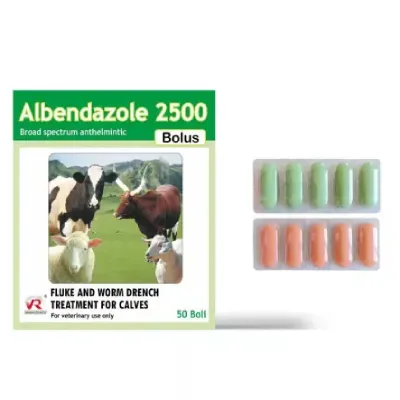- Afrikaans
- Albanian
- Amharic
- Arabic
- Armenian
- Azerbaijani
- Basque
- Belarusian
- Bengali
- Bosnian
- Bulgarian
- Catalan
- Cebuano
- Corsican
- Croatian
- Czech
- Danish
- Dutch
- English
- Esperanto
- Estonian
- Finnish
- French
- Frisian
- Galician
- Georgian
- German
- Greek
- Gujarati
- Haitian Creole
- hausa
- hawaiian
- Hebrew
- Hindi
- Miao
- Hungarian
- Icelandic
- igbo
- Indonesian
- irish
- Italian
- Japanese
- Javanese
- Kannada
- kazakh
- Khmer
- Rwandese
- Korean
- Kurdish
- Kyrgyz
- Lao
- Latin
- Latvian
- Lithuanian
- Luxembourgish
- Macedonian
- Malgashi
- Malay
- Malayalam
- Maltese
- Maori
- Marathi
- Mongolian
- Myanmar
- Nepali
- Norwegian
- Norwegian
- Occitan
- Pashto
- Persian
- Polish
- Portuguese
- Punjabi
- Romanian
- Russian
- Samoan
- Scottish Gaelic
- Serbian
- Sesotho
- Shona
- Sindhi
- Sinhala
- Slovak
- Slovenian
- Somali
- Spanish
- Sundanese
- Swahili
- Swedish
- Tagalog
- Tajik
- Tamil
- Tatar
- Telugu
- Thai
- Turkish
- Turkmen
- Ukrainian
- Urdu
- Uighur
- Uzbek
- Vietnamese
- Welsh
- Bantu
- Yiddish
- Yoruba
- Zulu
8 月 . 14, 2024 23:13 Back to list
Effective Veterinary Spray Solutions for Pet Health and Well-being in Your Home
The Role of Veterinary Spray in Animal Healthcare
Veterinary sprays have become increasingly important in the field of animal healthcare, serving as essential tools for treating various conditions and maintaining overall animal well-being. These specialized sprays are formulated with a variety of active ingredients that target specific issues, ranging from skin infections to insect infestations and wound care. Understanding the function and application of veterinary sprays can help pet owners make informed decisions about their animals' health.
One of the primary uses of veterinary sprays is for the treatment of skin conditions in pets. Dogs and cats, for instance, are prone to a range of dermatological issues, including allergies, hot spots, and bacterial or fungal infections. Veterinary sprays designed for skin care often contain antiseptic, antifungal, or anti-inflammatory agents. These ingredients work synergistically to soothe irritated skin, combat infectious agents, and promote healing. For example, sprays containing chlorhexidine or silver sulfadiazine are commonly used to cleanse wounds and prevent secondary infections. When using these sprays, it is crucial for pet owners to follow the veterinarian's advice regarding the proper application technique and frequency to ensure optimal results.
In addition to treating skin problems, veterinary sprays can also alleviate issues related to parasites
. Fleas, ticks, and mites can pose significant health risks to pets, leading to discomfort and severe allergic reactions. Veterinary insecticidal sprays offer a convenient solution for controlling these pests. These sprays typically contain ingredients that are toxic to insects but safe for pets when used as directed. Regular use of these sprays can help maintain a pest-free environment for pets, reducing the likelihood of infestations and promoting a better quality of life.veterinary spray

Wound care is another area where veterinary sprays excel. Pets, especially those that enjoy outdoor activities, are at risk of cuts and abrasions. Sprays specifically designed for wound management can expedite healing and minimize the risk of infection. Many wound care sprays include healing agents such as aloe vera, which soothes the skin and promotes cell regeneration, alongside antiseptics that eliminate harmful pathogens. Moreover, some veterinary sprays are designed to deter pets from licking their wounds, which is crucial for preventing further irritation and contamination.
It is important to note that not all veterinary sprays are suitable for every animal or condition. Before using any product, pet owners should consult with a qualified veterinarian to determine the appropriate treatment for their specific situation. A veterinarian can also recommend the most effective spray based on the animal's overall health and any underlying conditions.
Furthermore, responsible pet ownership includes being aware of potential side effects and contraindications when using veterinary sprays. Some animals may experience allergic reactions or sensitivities to certain ingredients. Pet owners should always monitor their pets after the application of any spray and report any unusual behavior or symptoms to their veterinarian promptly.
In conclusion, veterinary sprays play a vital role in modern animal healthcare, offering targeted solutions for various conditions, from skin ailments to parasite control and wound management. By leveraging these products safely and effectively, pet owners can enhance their pets' quality of life and contribute to their long-term health. As always, collaboration with a veterinarian is key to ensuring that the right products are used appropriately, promoting optimal health and wellbeing for our beloved animal companions.
-
The Power of Radix Isatidis Extract for Your Health and Wellness
NewsOct.29,2024
-
Neomycin Sulfate Soluble Powder: A Versatile Solution for Pet Health
NewsOct.29,2024
-
Lincomycin Hydrochloride Soluble Powder – The Essential Solution
NewsOct.29,2024
-
Garamycin Gentamicin Sulfate for Effective Infection Control
NewsOct.29,2024
-
Doxycycline Hyclate Soluble Powder: Your Antibiotic Needs
NewsOct.29,2024
-
Tilmicosin Premix: The Ultimate Solution for Poultry Health
NewsOct.29,2024













